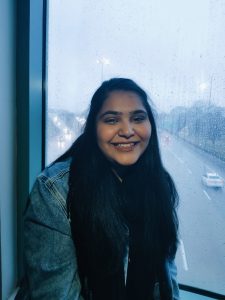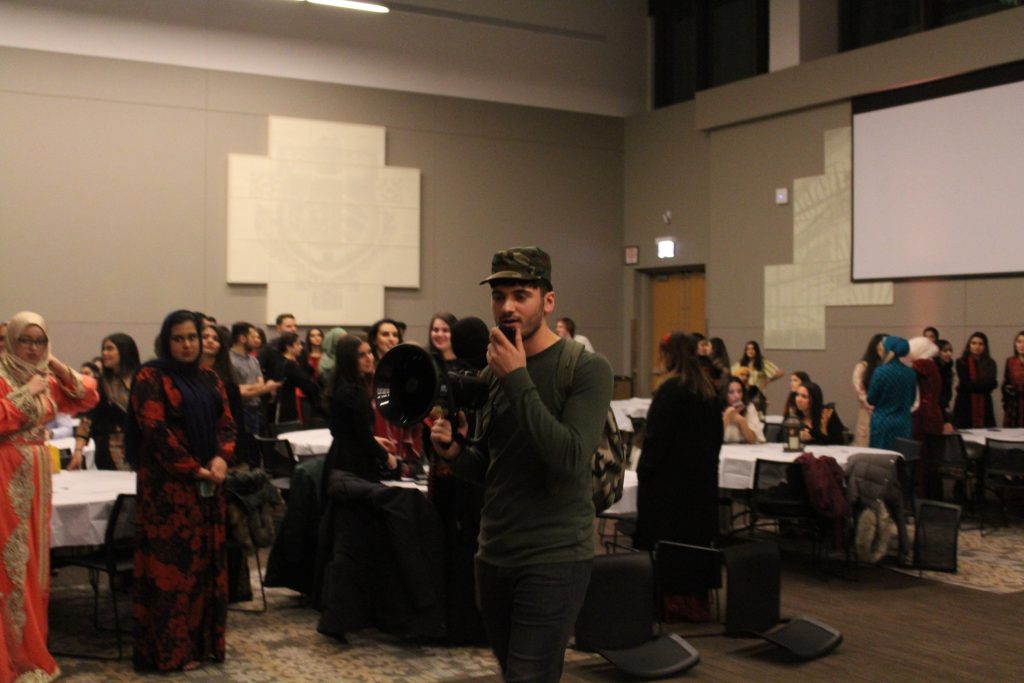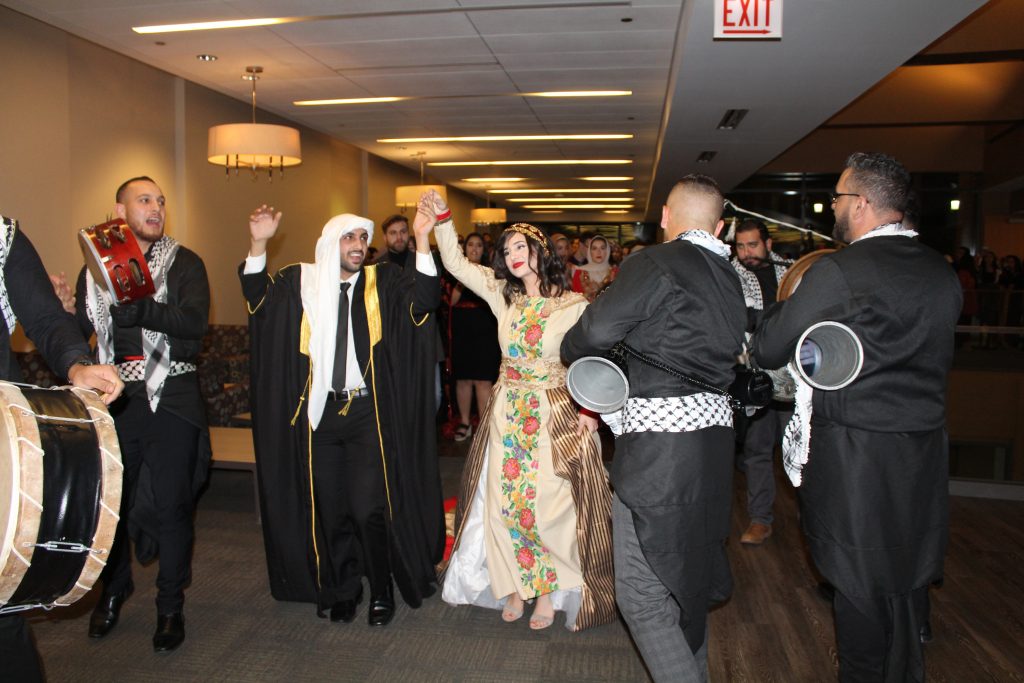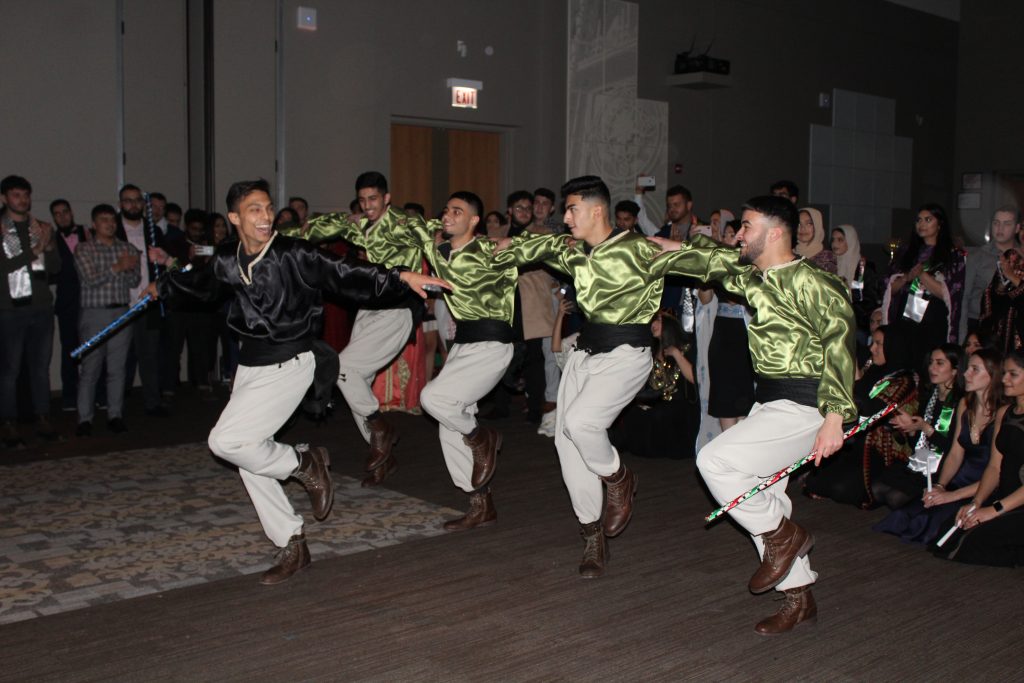
marHaba! My name is Nida Hameed and I am a senior here at Loyola. I’m currently in 104 class, minoring in Arabic language and Culture and I recently attended a Palestinian Mock Wedding held by the SJP chapter at Loyola. It was amazing to see the culture and history I was surrounded with. The theme of the wedding was Love Under Apartheid, so not only did I get to learn about Palestinian weddings but also the current occupation as well. The wedding was very well put together and everyone was dressed to the max. There was even a bride and a groom that demonstrated some of the Palestinian wedding traditions.

The event was very detailed. The guests were split amongst the Palestinian side and the Israeli side based on the ticket you received, which served as your ID to enter. The Israeli side was very well decorated and created a welcoming feel for those guests. The Palestinian side had the chairs thrown all over the floor and the guests had to wait to be granted permission to take a seat; they had actors play out the roles of soldiers that demanded seeing the IDs (the tickets) of the people on the Palestinian side. This was to symbolize the severe inequality taking place due to the Palestinian-Israeli conflict. There was also a room that symbolized the bride’s house where the bride’s family celebrated before sending her off.

Then, there was a zaffe group leading up to the venue (Damen MPR) with bagpipes and tablas. A lot of the guests wore Palestinian thobes with tatreez on them; the bride also wore a dress designed just for the event.

There were several traditional ceremonies shown like the bride’s entrance with her bridesmaid and candles and the groom putting gold jewelry on the bride. There was also a dabke performance by the Al-Salam Dabke Team. Additionally, there was so much food with several dishes such as rice, hummus, various meats, baba ghanoush, and even knafeh for dessert. Thanks to my Arabic classes so far, I was able to talk about and name all these things in Arabic.

When I was a 101 student, I attended a Palestinian Culture Night and I also wrote a blog post about it then. It’s really impressive to me how far I’ve come in terms of my cultural knowledge and Arabic language skills since then. This time around, I could name so many things in Arabic and even have a basic conversation with Arabic speakers. It was exciting to see the growth I’ve had thanks to my Arabic classes and I hope to grow more through 104 and by practicing conversations.
